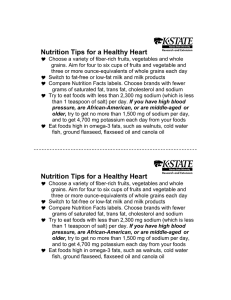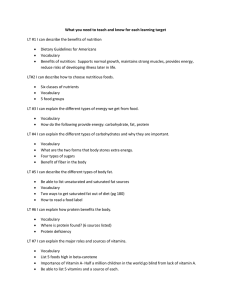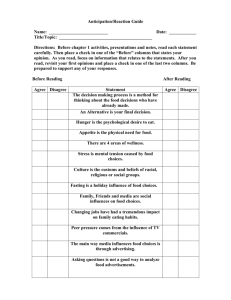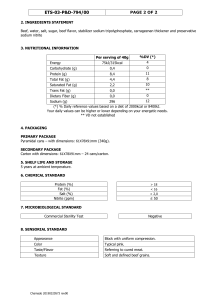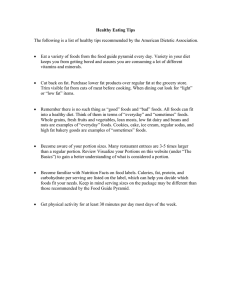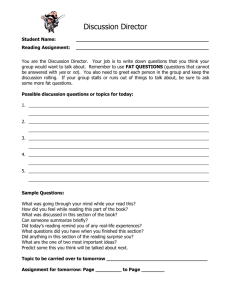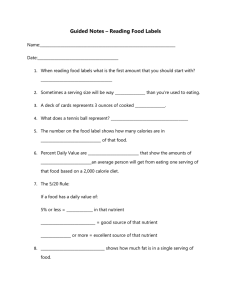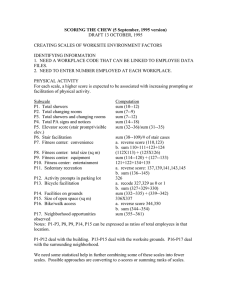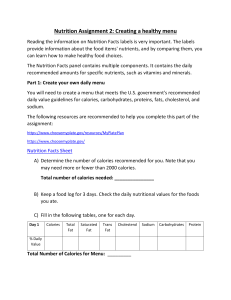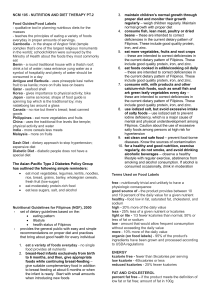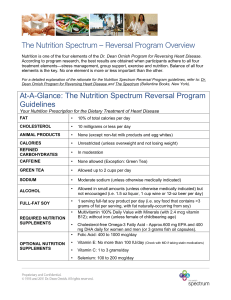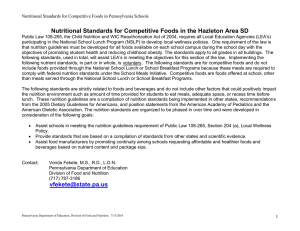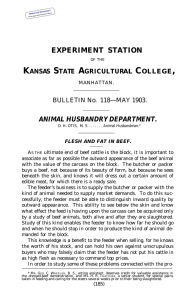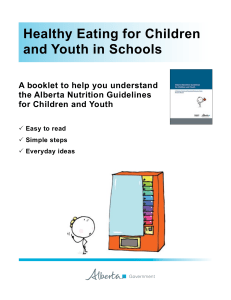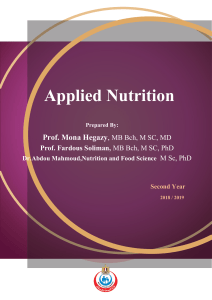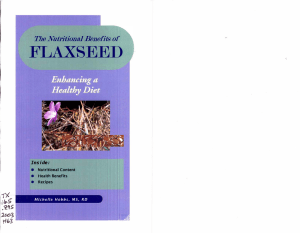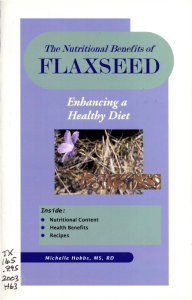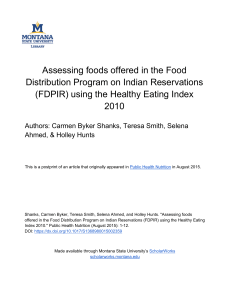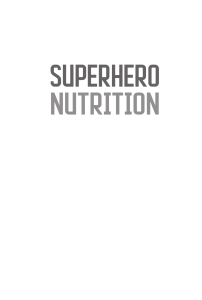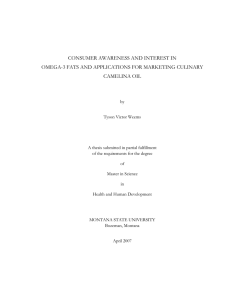Nutrition and Lifestyle Tips for a Healthy Heart:
advertisement
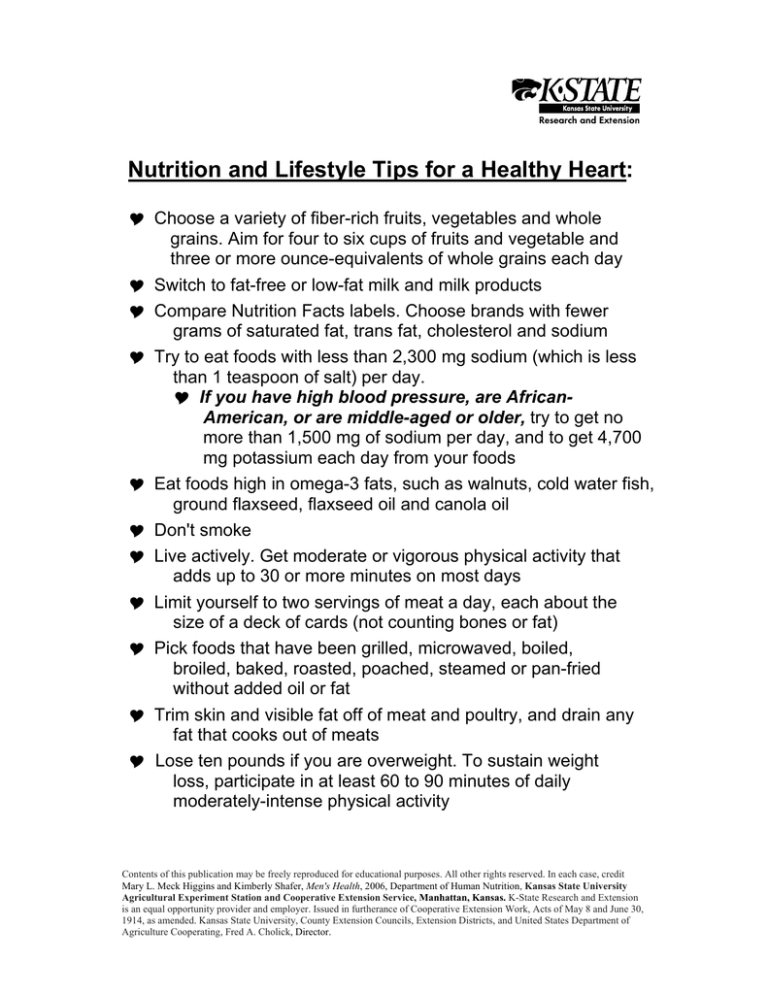
Nutrition and Lifestyle Tips for a Healthy Heart: Choose a variety of fiber-rich fruits, vegetables and whole grains. Aim for four to six cups of fruits and vegetable and three or more ounce-equivalents of whole grains each day Switch to fat-free or low-fat milk and milk products Compare Nutrition Facts labels. Choose brands with fewer grams of saturated fat, trans fat, cholesterol and sodium Try to eat foods with less than 2,300 mg sodium (which is less than 1 teaspoon of salt) per day. If you have high blood pressure, are AfricanAmerican, or are middle-aged or older, try to get no more than 1,500 mg of sodium per day, and to get 4,700 mg potassium each day from your foods Eat foods high in omega-3 fats, such as walnuts, cold water fish, ground flaxseed, flaxseed oil and canola oil Don't smoke Live actively. Get moderate or vigorous physical activity that adds up to 30 or more minutes on most days Limit yourself to two servings of meat a day, each about the size of a deck of cards (not counting bones or fat) Pick foods that have been grilled, microwaved, boiled, broiled, baked, roasted, poached, steamed or pan-fried without added oil or fat Trim skin and visible fat off of meat and poultry, and drain any fat that cooks out of meats Lose ten pounds if you are overweight. To sustain weight loss, participate in at least 60 to 90 minutes of daily moderately-intense physical activity Contents of this publication may be freely reproduced for educational purposes. All other rights reserved. In each case, credit Mary L. Meck Higgins and Kimberly Shafer, Men's Health, 2006, Department of Human Nutrition, Kansas State University Agricultural Experiment Station and Cooperative Extension Service, Manhattan, Kansas. K-State Research and Extension is an equal opportunity provider and employer. Issued in furtherance of Cooperative Extension Work, Acts of May 8 and June 30, 1914, as amended. Kansas State University, County Extension Councils, Extension Districts, and United States Department of Agriculture Cooperating, Fred A. Cholick, Director.
